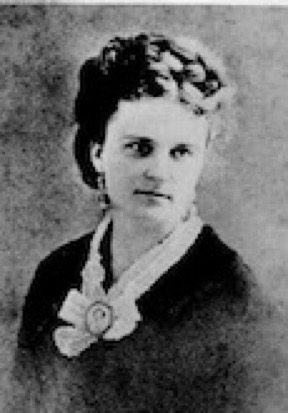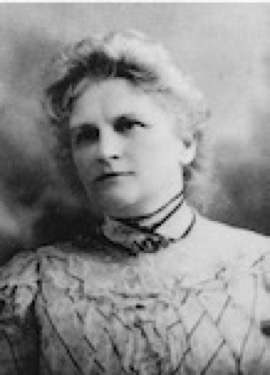Kate Chopin
Literary Critique - Athenaise
May/17/2016 02:15 PM Filed: Literary Critiques

Photo Credit: Unknown
(Wikimedia Commons)
Family Ties and the Marital Obligation
Kate Chopin portrays a woman pressured into the socially acceptable norm of committed marriage in “Athenaise,” a story published in 1896. Known as a liberated go-getter, her fiction asserted a woman’s right to establish an identity separate from her husband, an act of rebellion her contemporaries considered scandalous.
By contrasting a spouse’s gentle nature with a sibling’s abrasive demeanor, Chopin emphasizes the role a male figurehead played in a woman’s life. Athenaise’s brother seems sympathetic when she abandons her husband, but he searches for serious reasons that his sister cannot provide, such as physical abuse or alcoholism.
In contrast, her husband takes rejection like a saddened gentleman, and Athenaise does not accuse. She simply leaves, an unthinkable act of defiance. This female protagonist is perceived by those around her as a flighty child controlled by her emotions. By playing devil’s advocate, Chopin makes fun of staid, paternalistic values.
Yet Chopin is far from a man-hater. Her sympathetic portrayals demonstrate that she can relate to the aborted marriage from a man’s viewpoint as well. However, she examines the undesirable nineteenth-century tendency to run a young woman out of her childhood home into the waiting arms of a husband, while discouraging freedom to live independently.
In the end, Athenaise succumbs to social pressure. The last paragraph alludes to sedated resignation of her domestic fate and sudden concern for a crying baby in a nearby cabin, which shows an instinctive maternal urge manifesting itself. Although her ambivalence may appear resolved, Athenaise did not choose the strongest course of action. She made the difficult decision to return to her husband, a responsible choice for a woman of her confining society.
Literary Critique - The Storm
March/27/2016 09:27 AM Filed: Literary Critiques

Photo Credit: Times-Picayune
(Wikimedia Commons)
Kate Chopin and the Art of Avoidance
In “The Storm” Chopin presents Alceé Laballière, a man separated from his wife and children, as he renews his friendship with Calixta, an old sweetheart, while memories of infatuation overwhelm him. They engage in sexual relations after he enters her residence during a violent storm. Their contact is sweet and sincere.
A person may be inclined to classify his behavior as infidelity until the end of the story when Chopin relates the particulars of the separation by describing an exchange of letters. The man’s wife Clarisse and his children left him for a temporary reprieve in Biloxi, Mississippi, where she could enjoy her friends without her husband’s presence. The marriage is a congenial alliance, but not an intense, sexually charged relationship.
Chopin writes, “And the first free breath since her marriage seemed to restore the pleasant liberty of her maiden days. Devoted as she was to her husband, their intimate conjugal life was something which she was more than willing to forego for a while.”
This is not what nineteenth-century society would expect to discover at the end of Alceé’s encounter. Instead of a moralizing tone, the author relates events and allows the reader to analyze. When Clarisse finds her spouse’s presence suffocating, she simply leaves. Calixta also exhibits an uninhibited sense of self, but the act of assertion is her pursuit of a married man.
A feminist, Chopin was a writer ahead of her time. Her frank portrayals of women and men going against established norms in romantic and not so romantic relationships may not seem shocking today, but in the late 1800s her thought-provoking stories jarred readers into questioning the accepted patterns of their lives. She encouraged individuality and the ability to determine the needs of the self, particularly in women, often through the art of avoidance.
The nineteenth century was the “pre-liberated” era, but Chopin had already discovered the positive and negative paths that liberation would take. She doesn’t glorify “woman” with the rabid stance of a political activist, rather she challenges everyone to think rather than act like automatons.